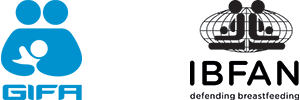
On behalf of IBFAN, Mike Brady, Campaigns Coordinator at Baby Milk Action/IBFAN UK, took part in a panel discussion on Challenges and Opportunities of a Treaty Addressing Corporate Abuses of Human Rights on November 18, 2015. This event was jointly organized by ESCR-Net, Al-Haq, FIDH, Franciscans International and IBFAN-GIFA.
In front of a full room, Mike Brady first emphasized the need to put health before business interests and shed light on the consultation process, rather than negotiation with the business sector, which led to the adoption of the International Code of Marketing of Breastmilk Substitutes in 1981.
He then showed that, despite its integration in the human rights framework through the Convention on the Rights of the Child, the Code is still widely violated by baby food companies because of a lack of implementation and enforcement at national level. Indeed, States that host baby food companies may be reluctant to put their corporations at a competitive disadvantage by taking more robust action than other countries. It stresses the need for an international mechanism that will help create a level playing field.
Mike Brady shared IBFAN’s 35-year long experience of working with voluntary mechanisms such as the Global Compact or the OECD Guidelines for Multinational Enterprises which have ultimately failed in holding corporations accountable for their Code violations.
Therefore, when people say the UN Global Compact and OECD Guidelines make a binding treaty unnecessary, IBFAN disagrees. On the contrary, IBFAN believes that international binding norms are necessary to hold corporations fully accountable for their human rights violations, including for their violations of the Code.
